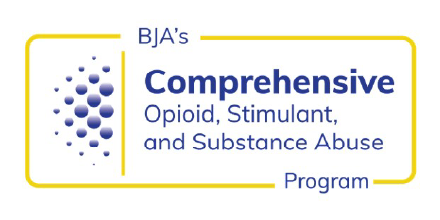The Madison Police Department trains every officer to respond appropriately to people who have mental illnesses or are in crisis, emphasizing communication, de-escalation, and stabilization skills to work toward an effective resolution. MPD’s CIT Training Program focuses on four pillars: pre-service academy CIT, in-service CIT updates, basic CIT (nationally known 40-hour course), and advanced CIT.
Transforming Systems > Crisis Response > Crisis Intervention Teams (CIT)
Overview
A Crisis Intervention Team (CIT) program is a community-based law enforcement and behavioral health partnership. CIT programs bring together law enforcement, mental health professionals, mental health advocates (people living with mental illness and their families), and other partners to improve community responses to mental health crises. While CIT programs are known for CIT-trained officers, successful programs also focus on enhancing the crisis response system, advocating for needed services, and strengthening partnerships across the community.
Resources
Program Models
- MISSOULA, MT
CIT Coordinators host a 40-Hour Basic Academy each year. Its purpose is to assist law enforcement officers, detention staff, dispatchers, and other emergency responders in engaging, assessing, and helping individuals in crisis with mental health and/or co-occurring substance use disorders. New this year (2020), the CIT Program Manager is now offering an 8-HR Mental Health First Aid training to Public Safety and Fire/EMS audiences.
- Southwest, VA
The New River Valley CIT program is a model for how rural law enforcement and behavioral health can work together to respond to individuals experiencing mental health crises in rural areas.
- SALT LAKE CITY, UT
The Crisis Intervention Team (CIT) includes specially trained law enforcement officers who are taught to effectively respond to situations involving a person experiencing a mental health crisis. SLCPD also operates a dedicated unit known as the CIT Investigative Unit. Whenever a case involves a person with a mental illness, a detective in the CIT Investigative Unit reviews the report and determines if additional follow-up is required or would be beneficial for the individual. The CIT Investigative Unit helps to connect them to relevant mental health services.
- TUCSON, AZ
The Mental Health Support Team at the Tucson Police Department comprises dedicated CIT officers whose exclusive role is to respond to mental health crises, engage in proactive outreach, and serve court orders to individuals with mental illness.
Funding
Below is a list of funding opportunities that have been previously available from federal and private funding sources. Please note that although the funding deadlines may have passed, they can still be reviewed and considered for future planning purposes. You can check back often on the Announcements page for current funding opportunities as they are announced.
Collaborative Crisis Response and Intervention Training Program
Community Policing Development: Implementing Crisis Intervention Teams
Connect and Protect: Law Enforcement Behavioral Health Response Program
The Justice and Mental Health Collaboration Program
Technical Assistance
Many federal agencies and other partners offer assistance, in addition to grant funding, to jurisdictions, agencies and stakeholders to address training needs or the need for subject matter expertise to address local issues or challenges. Through these resources, you can access recent publications, tools, often request one-on-one remote or offsite assistance. Examples of assistance can include time with trainings, consulting time with subject matter experts, and/or opportunities for connecting with peers doing similar work.

Comprehensive Opioid, Stimulant and Substance Abuse Program Training and Technical Assistance
The COSSAP training and technical assistance (TTA) program offers a variety of learning opportunities and assistance to support BJA COSSAP grantees and other local, tribal, and state stakeholders to build and sustain multidisciplinary criminal justice responses to illicit substance use and misuse. Training and technical assistance is provided in a variety of formats, including virtual and in-person training events, workshop and meeting presentations, and online resources. TTA deliveries are provided to requestors free of charge. You can request assistance here.